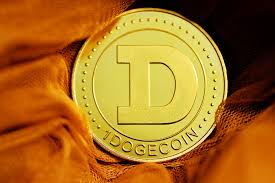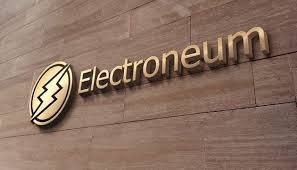A blockchain network called ABBC facilitates secure financial transactions, facilitating retail adoption of cryptocurrencies and improving the safety and convenience of end-users online buying with digital assets. The platform provides three primary products. First, a multi-platform wallet supports various native cryptocurrencies and ERC-20 tokens, including Bitcoin (BTC) and Ethereum (ETH). Second, an online shopping tool facilitates crypto purchases at over 50 online stores. Third, the exchange platform ensures secure trading with minimal transaction fees.

The cryptocurrency empowers selected block producers (BPs) with voting authority, enabling them to shape the ABBC platform’s development through proposed governance changes. These governance suggestions may address a variety of issues, such as establishing new features, forming joint ventures, or extending ABBC’s reach into further areas. In addition, this digital coin was developed as an online shopping rewards program and can be staked for ongoing incentives.
Due to the EOSIO blockchain’s energy-efficient delegated proof-of-stake (DPoS) consensus mechanism, ABBC can now process up to 5,000 transactions per second (TPS) while still being ecologically friendly. Following a disagreement with Chinese multinational e-commerce company Alibaba, ABBC Coin changed its name in March 2019 from Alibabacoin.
Creators of the ABBC Coin
Jason Daniel Paul Philip, the platform’s current CEO, and Hasan Abbas, the platform’s current CTO, jointly founded ABBC currency. Jason Daniel Paul Philip, a proficient full-stack engineer, excels in Javascript and C# and is an adept blockchain developer. He also serves as the M&A manager at TNC Group, a blockchain service solutions company. Hasan Abbas, on the other hand, has a minimal web presence and his history is unclear.
Arben Kane is the founder and CEO of Kontur, a global provider of SaaS-based critical event management solutions, as well as the global chief strategy officer of ABBC. G.W. Lee is the CSO of ABBC Coin, and Zeeshan Javeed is in charge of the organization’s technological advancements. The collective ABBC group consists of 23 individuals within the blockchain development unit, accompanied by 15 dedicated to marketing, 4 focused on blockchain security, and 3 specializing in finance.
Individuality of ABBC
The primary goal of this crypto is to use blockchain technology to enable quick, effective, and safe online retail. According to their team, this digital coin’s reduced payment processing costs and access to more international markets are very advantageous for small to medium-sized marketplaces. It began as a Bitcoin (BTC) fork, but in August 2019, it switched to the EOSIO network. The main advantage of the EOSIO software is that it is appropriate for scaling platforms like ABBC Coin since the amount of bandwidth available is independent of the token price.
The full decentralization goal of this crypto is also being pursued through community governance. Holders of this coin token, in addition to the present team, can delegate their voting rights so that others can cast ballots on their behalf. Voting on ABBC’s governance proposals allows block producers (BP) to influence the development and destiny of the ABBC Coin.
ABBC Coins in circulation
The total quantity of this crypto Coin is limited to 1,423,973,934 ABBC. Just under half of this is currently in use as of this writing. Unlike numerous blockchain projects, this cryptocurrency has a clear token distribution strategy: investors get 80% during the TGE, while creators and the team receive 20%. As of November 2020, no specifics regarding the distribution of these tokens or the circumstances in which the ABBC Foundation and team will use them were made public. In 2018, the project held an initial coin offering (ICO), raising about $3.5 million by selling coins for 0.00025 Bitcoin apiece, or about $1.60 at the time of the sale.
Network security for ABBC Coin
Initially, a fork of Bitcoin, ABBC Coin later moved to the EOSIO platform. It now secures its network by using the EOSIO DPoS consensus method. Compared to its original proof-of-work (POW) consensus technique, this algorithm can validate transactions more quickly and effectively. Additionally, stake-weighted voting mechanisms help the digital currency grow and develop in a way that is led by the community.
By wielding their ABBC Coin holdings, individuals can actively partake in the election of block producers (BPs), fostering consensus, reinforcing network security, and collectively validating legitimate transactions within the network. With ABBC, token holders have the chance to empower organizations they think will act in the network’s best interests by voting to add, amend, or remove block producers.
You can also find these articles helpful
Advantages and disadvantages of ABBC coin
Is it profitable to trade ABBC Coin?
Advantages and disadvantages of Dynamic










